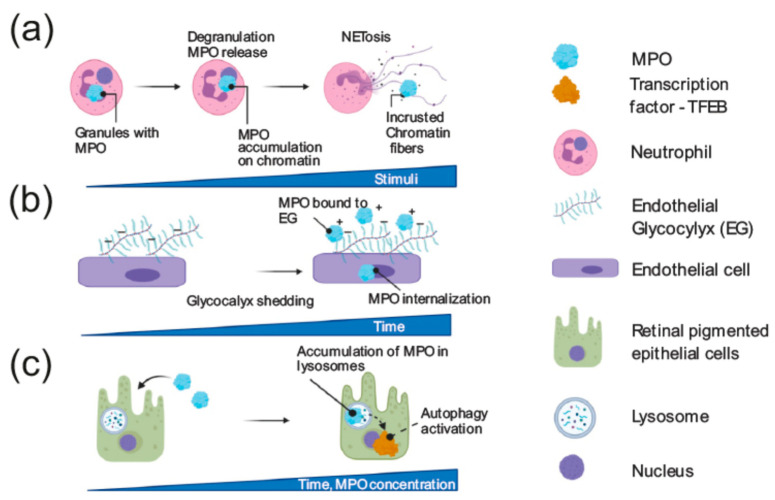Figure 4.
Neutrophil extracellular trap (NET) formation and non-enzymatic modes of MPO effects in different cell types. (a) MPO is important for NET formation. Stored in azurophilic granules of rested neutrophils, MPO is released upon various stimuli, contributes to the formation of NETs, and becomes part of NETs when encrusting the chromatin. (b) Due to its cationic charge, MPO shows a high affinity towards negatively charged endothelial glycocalyx. Moreover, MPO is internalized by endothelial cells. (c) In retinal pigmented epithelial cells MPO is internalized and accumulated in lysosomes leading to activation of autophagy.

